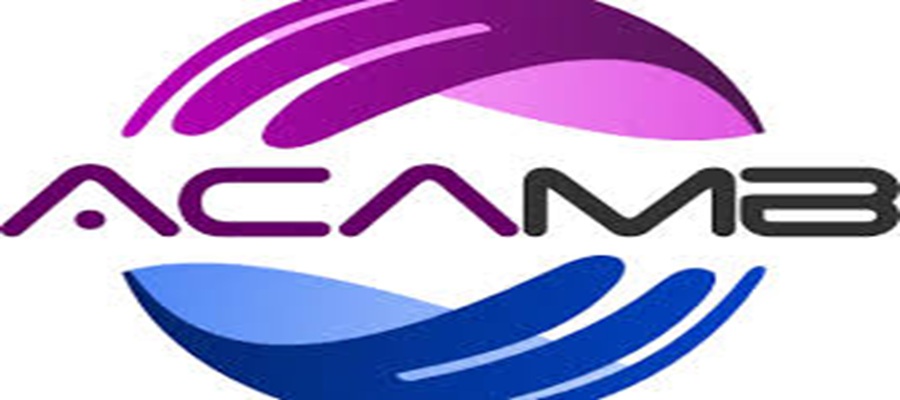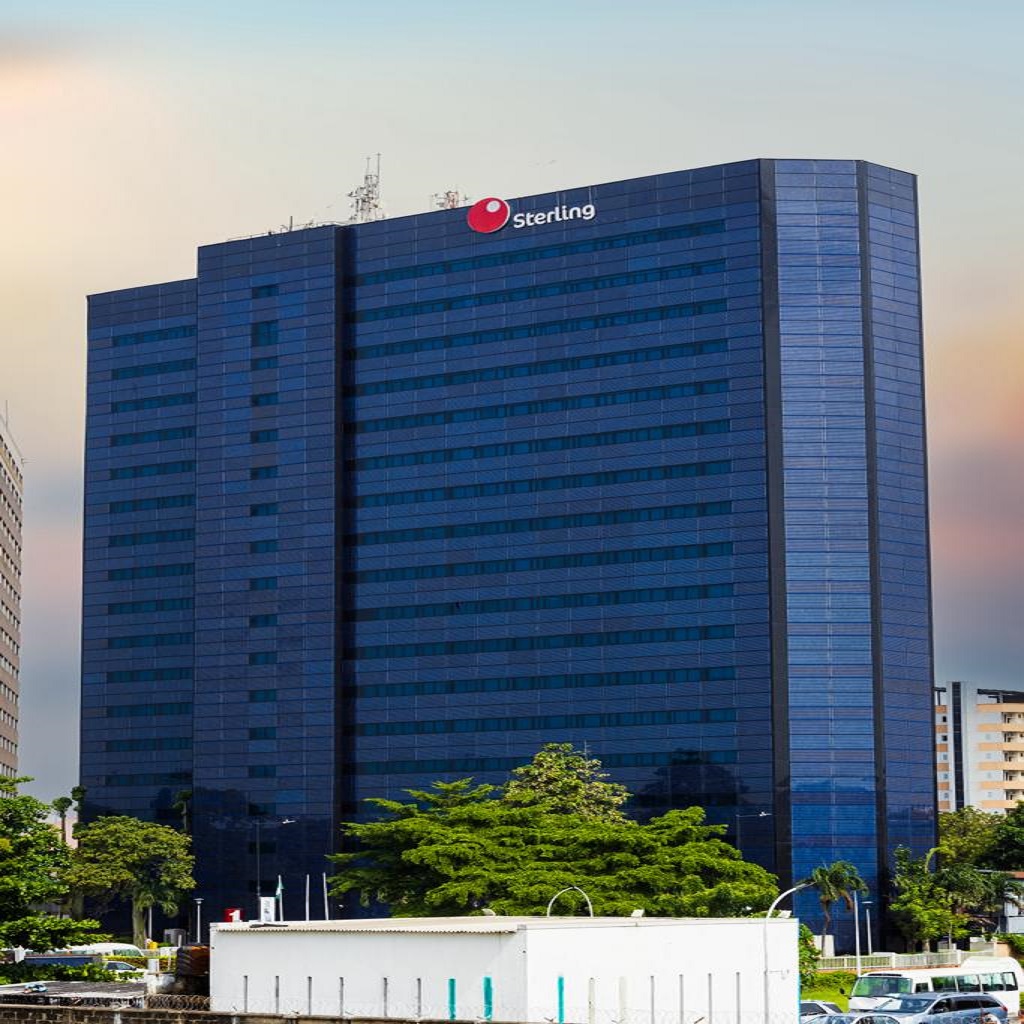E-Financial
Mastercard Adds Hello Tractor, Nigerian Agri-Tech Firm to Accelerate Programme

Mastercard has announced the expansion of its Accelerate fintech portfolio, adding dynamic entrepreneurs to its award-winning startup engagement program Start Path and more technology partners to its Engage network, providing access to expert engineers and specialists that can help customers deploy new services quickly and efficiently.

Mastercard helps emerging brands grow, diversify and build their businesses, supporting their programs today and serving up what we know they will need in the decades to come.
Recognizing the important role fintechs play in the world’s rapid digital transformation, Mastercard is continuously diversifying its business by diversifying its perspective: looking to new partners, new markets and new ways to build on its core competency as a payments network.
The most recent African fintech to join the Start Path program is Hello Tractor, which operates across Nigeria and Kenya.
Hello Tractor is revolutionizing mechanization services across emerging markets by bringing together tractor owners and smallholder farmers through Internet of Things technology and allowing farmers to access affordable tractor services, plant on time and increase yields. It is one of 11 global startups welcomed into Start Path.
“The current global shift towards digitization and open banking is transforming the future of commerce and connectivity as we know it. We are particularly excited to partner with regional innovative fintechs, such as Hello Tractor, through our Start Path program. These partnerships are crucial as we continue to build the digital economy through ongoing innovations that deliver locally-relevant payment solutions to empower communities and harness Africa’s potential,” said Raghav Prasad, division president for Sub-Saharan Africa, Mastercard.
Mastercard Start Path
Globally, Mastercard is welcoming 11 new startups to its Start Path program, offering a powerful network, innovative technology and deep expertise to help them grow their business and scale sustainably.
Since 2014, Mastercard has invited more than 230 later-stage startups worldwide to participate in its six-month virtual program, providing technical guidance, operational support and commercial engagements within the Mastercard ecosystem.
“Hello Tractor is revolutionizing how farmers access tractors in a region that has been plagued by low rates of mechanization. By partnering with Mastercard through the Start Path program, we have the opportunity to unlock additional value for our farmers by expanding their access to banking and payments infrastructure. This combination of innovations holds unlimited promise for this continent and the global south,” said Jehiel Oliver, founder Hello Tractor.
Across Sub-Saharan Africa, several African fintechs have benefited from the Start Path program including Ukheshe, MAX, N-Frnds, Flutterwave, Kasha, mfarmPay, Netplus, Lidya and Lipa Later.
Providing a simple, single entry point to Mastercard’s wide fintech portfolio and access to everything startups need to grow quickly, these fintechs have achieved accelerated growth from the program over the past few years.
Start Path evaluates more than 1,500 applications each year and selects approximately 40 startups that offer the most promising technologies and demonstrate a readiness to scale.
Startups in this growing network have gone on to raise $2.7 billion in post program capital and collaborate with Mastercard, major banks, merchants and other high-profile organizations.
Mastercard Engage
Consumer expectations are evolving more rapidly than ever and banks, financial institutions, and digital players are looking for even more agility in bringing new solutions to market; Mastercard’s global reach and local roots afford it the ability to foster a strong, carefully curated network of technology partners that are qualified based on Mastercard standards and industry requirements.
Mastercard is expanding its Engage program to support even more solutions and deliver better learning and promotional opportunities for partners.
Engage identifies, serves and promotes a network of more than 170 strategic partners who comply with Mastercard certification and rules, to build and deploy new solutions on behalf of fintechs, banks and merchants.
In the first quarter of 2020 alone, Engage signed almost 50 new deals with partners such as Antelop, Giesecke+Devrient Mobile Security, MeaWallet, Netcetera, Payair and Thales across Europe, Latin America, Asia Pacific and Middle East & Africa.
Strengthening the capabilities of technology partners is even more critical during times of crisis, so fintechs can innovate faster and better serve consumers and businesses.
Engage has enabled more than 200 million cards to support financial growth and market entry for fintechs around the world.
Additional resources are now available for partners through the new Mastercard Engage website.
E-Financial
ACAMB Educates Content Creator to Curb Misinformation on Bank Recapitalisation

In a bid to foster accurate public discourse as well as protect the stability of the financial sector, the Association of Corporate and Marketing Professionals in Banks (ACAMB) has stepped in to educate renowned content creator, Unofficial Osas, following his misrepresentation of facts concerning the Central Bank of Nigeria’s (CBN) recapitalisation drive, and subsequent invitation by the Nigerian Police Force.

ACAMB
The intervention by ACAMB led to the successful retraction of a misleading video regarding the CBN recapitalisation policy, demonstrating the Association’s commitment to its core mandate of public enlightenment.
In his official apology video, the content creator stated, “I was invited by the Nigerian police force national cyber crime centre in Abuja over the video I posted on the 15th of December, where i spoke about 12 banks that were shut down in relation to the CBN recapitalisation policy. I would like to offer an official retraction of that video and want to reiterate that no bank is shutting down.
“As a matter of fact, most of the banks have now met the ₦500 billion minimum capital base for banks with international and the N200bn for national banks recapitalisation requirements, so no bank is shutting down.
“I want to specifically appreciate ACAMB. They were very professional in handling this case and did well to educate and enlighten me on the recapitalisation process. I am now better informed and know better”
Commenting on the resolution, President of ACAMB, Jide Sipe, reinforced the Association’s dedication to protecting the integrity of the banking sector. “ACAMB stands for the restoration of professional banking ethics and public confidence through seamless information management and public enlightenment.
“We believe that an informed public is an empowered public. By engaging Unofficial Osas, we ensured that accurate information regarding the resilience and strength of our banks was disseminated to the millions of Nigerians who follow him.”
The Intervention shows ACAMB is dedicated to evolving strategies that enhance and sustain a good image for the nation’s banking sector as well as assist in fostering better banking habits among Nigerians.
E-Financial
FirstCap MD says Payment Security Remains Biggest Barrier to Bankable Gas and Power Projects

Ukandu E. Ukandu, Managing Director/CEO of FirstCap Limited, a leading investment banking firm and subsidiary of First HoldCo Plc., has reaffirmed that payment security remains the most decisive factor in determining whether gas and power projects in Nigeria secure financing.

He shared this perspective during a panel discussion on project bankability at the 2026 SPE Lagos Energy Week.
Ukandu noted that although several risks influence financing decisions, payment risk consistently emerges as the key barrier to financial close.
“Every major risk matter, but payment risk is the ultimate deal‑breaker. Without strong payment security and disciplined collections, no project can attract sustainable financing,” he said.
He explained that lenders typically evaluate three core risk pillars, payment reliability, foreign‑exchange exposure, and contract enforceability, with payment reliability presenting the greatest challenge across Nigeria’s energy value chain. Persistent collection inefficiencies, rising arrears, and liquidity pressures continue to weaken investor confidence.
To enhance payment security, Ukandu highlighted mechanisms widely used by financiers, including letters of credit, bank guarantees, escrow accounts with payment‑waterfall structures, reserve and sinking funds, sovereign or sub‑sovereign support, and take‑or‑pay offtake agreements.
Addressing foreign exchange risk, he noted that volatility remains difficult to manage, especially for projects with dollar‑denominated costs but naira‑denominated revenues. Lenders typically mitigate this through foreign exchange ‑linked tariff indexation, partial dollarisation for credible industrial offtakers, escrow protections, selective hedging, and foreign exchange reserve buffers.
However, he cautioned that indexation alone seldom eliminates exposure due to regulatory limits and timing delays.
On legal and regulatory certainty, Ukandu stressed the need for contracts that are enforceable and clearly structured, particularly around take‑or‑pay obligations, termination payments, step‑in rights, and dispute‑resolution frameworks. He added that factors such as tariff adjustments, licence changes, and price controls can significantly affect project viability if they are not fully addressed at the contracting stage.
While fiscal incentives such as tax holidays and accelerated depreciation can strengthen project economics, Ukandu emphasised that they cannot compensate for weak fundamentals.
“Incentives make a good project better, but they do not make a weak project bankable. Cash‑flow reliability and disciplined foreign exchange management must come first,” he said. He also noted that naira‑based incentives may lose value if project revenues are not indexed.
He concluded by urging industry players to prioritise revenue security from the earliest stages of project structuring: “Protect returns at the source. Build strong offtake arrangements with solid credit support and currency alignment to ensure cash is received in full and on time.”
E-Financial
Sterling HoldCo Starts Allotment of Oversubscribed Public Offer Shares

Sterling Financial Holdings Company Plc (Sterling HoldCo) has begun allotting 12,581,000,000 ordinary shares of 50 kobo each at ₦7.00 per share from its 2025 Public Offer.

Sterling HoldCo
The process follows Central Bank of Nigeria (CBN) and Securities & Exchange Commission (SEC) approvals.
The offer, opened September 15, 2025, drew 18,280 applications for 16.84 billion shares worth ₦117.88 billion—109.79 per cent oversubscribed.
Valid applications from 18,276 shareholders totalled 13.81 billion shares; all compliant applicants receive full allotments.
Refunds for rejects/excess, plus interest, process via RTGS/NIBSS by February 17, 2026, handled by Pace Registrars Limited.
Shares credit to CSCS accounts by the same date; new accounts held in pool pending documentation.
The raise bolsters capital for banking subsidiaries, injects ₦10 billion into SterlingFI Wealth Management to meet SEC rules, and funds credit expansion, innovation, and support for businesses/households.
Strong Financials, Diversified Growth
FY25 interim results show 99 per cent profit before tax growth; gross earnings up 46 per cent to ₦476.5 billion; assets at ₦3.92 trillion; deposits up 18 per cent to ₦2.98 trillion; shareholders’ funds up 39 per cent to ₦424 billion.
Cost-to-income ratio improved to 63 per cent from 72 per cent.
Subsidiaries—Sterling Bank Limited (conventional), The Alternative Bank Limited (non-interest, 150+ branches)—comply with CBN capital rules.
Initiatives include Mata Zalla (women tricycle training) and Plateau agriculture programme.
The offer attracted first-time retail investors, broadening ownership.
Sterling HoldCo welcomes new shareholders, poised for sustained growth and economic impact.

 E-Financial3 days ago
E-Financial3 days agoEcobank Nigeria Fully Repays $300m Eurobond Notes

 E-Financial3 days ago
E-Financial3 days agoZenith Bank Warns Public Over Fake Jim Ovia Investment Videos

 General News2 days ago
General News2 days agoPalmPay Unveils First Batch of Winners in #LoveWithPalmPay Campaign

 E-Financial1 day ago
E-Financial1 day agoACAMB Educates Content Creator to Curb Misinformation on Bank Recapitalisation

 E-Business3 days ago
E-Business3 days agoChams Carves Out Subsidiary to Support Africa’s Digital Transformation

 Telecom2 days ago
Telecom2 days agoBanks, Telcos Settle Four-Year Dispute over N300Bn USSD Debt

 E-Financial3 days ago
E-Financial3 days agoBoI Secures CBN’s Approval for Non-interest Banking Operation

 E-Financial2 days ago
E-Financial2 days agoFirstCap MD says Payment Security Remains Biggest Barrier to Bankable Gas and Power Projects


























